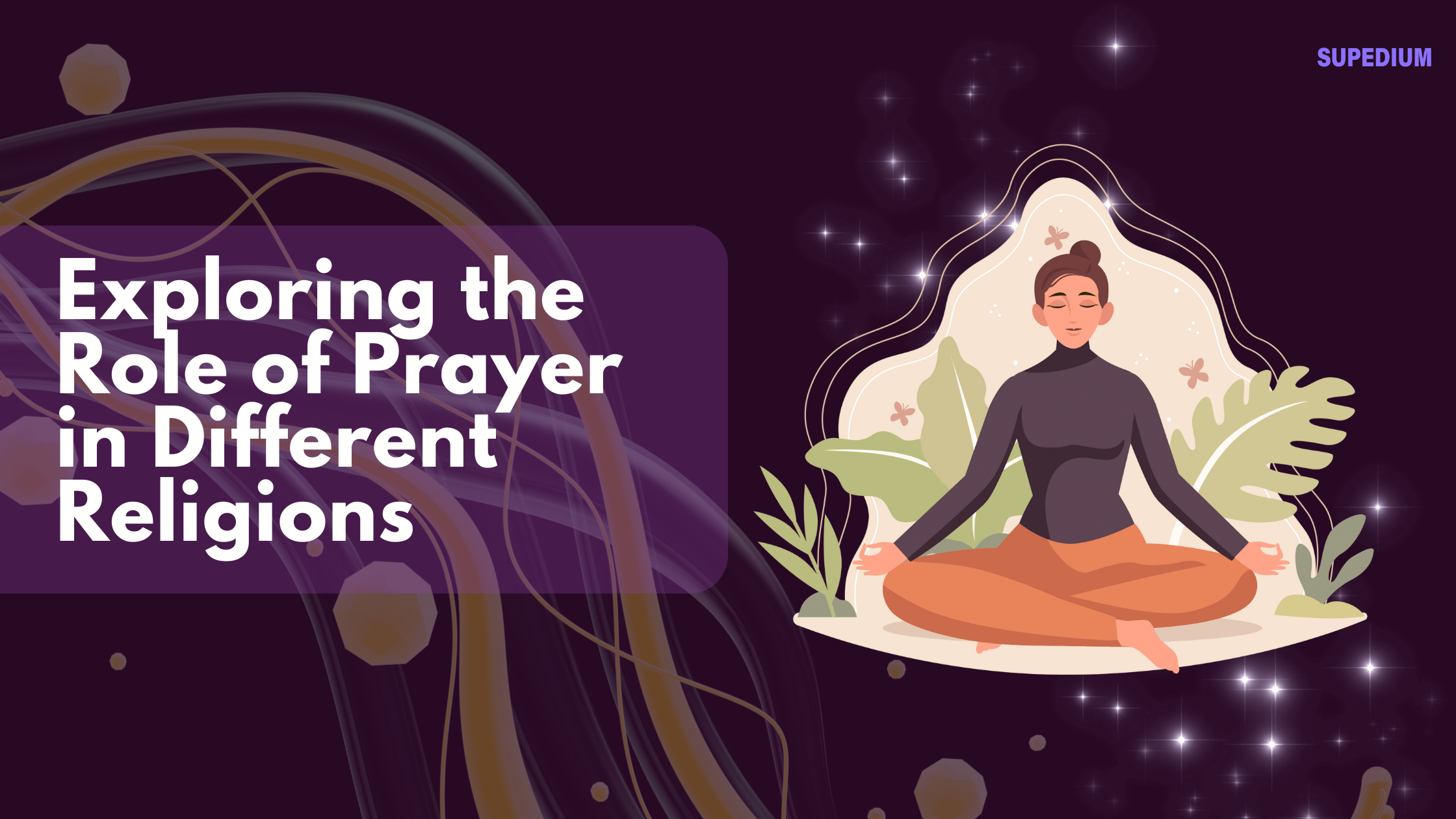Table of Contents
![]()
Introduction
Prayer is a profound and universal practice found in nearly every religious tradition around the world. It serves as a primary means of communication with the divine, a channel for personal reflection, and a tool for spiritual growth. While the essence of prayer remains consistent—seeking connection with a higher power—the methods and significance vary greatly across different religions. This article explores the role of prayer in major world religions, examining its various forms, practices, and impacts on individuals and communities.
Major Religions and Their Practices of Prayer
Christianity
In Christianity, prayer is central to the faith and is viewed as a way to communicate directly with God. The purpose of prayer ranges from personal supplication and confession to thanksgiving and praise. Christians engage in various types of prayer:
- Personal vs. Communal Prayer: Personal prayer can be spontaneous or structured, while communal prayer often occurs in group settings, such as church services.
- Structured Prayers: Examples include the Lord’s Prayer, which encapsulates key elements of Christian doctrine and serves as a model for personal prayer.
- Informal Prayers: Many Christians also pray spontaneously, expressing their thoughts and feelings directly to God.
Christian prayer practices include daily rituals such as morning and evening prayers, as well as specific times set aside for prayer during church services. The impact of prayer on Christians is significant, influencing both individual spiritual life and communal worship.
Islam
In Islam, prayer (Salah) is one of the Five Pillars and is considered an essential act of worship. Muslims perform prayers at specific times throughout the day, including:
- Mandatory Daily Prayers: These include Fajr (dawn), Dhuhr (midday), Asr (afternoon), Maghrib (sunset), and Isha (night). Each prayer involves a series of physical movements and recitations from the Quran.
- Personal Supplications (Dua): In addition to the mandatory prayers, Muslims engage in personal supplications to seek guidance, forgiveness, and blessings.
Islamic prayer practices are deeply ritualistic, involving cleanliness (Wudu) and specific movements. Prayers are performed facing the Kaaba in Mecca, and while much of the prayer takes place in mosques, personal prayer is also a significant aspect of daily life. The emphasis on prayer helps to structure the day and maintain a constant connection with Allah.
Judaism
In Judaism, prayer is a means of conversing with God, seeking guidance, expressing gratitude, and making requests for forgiveness. The Jewish prayer practice includes:
- Daily Prayers: These include Shacharit (morning), Minchah (afternoon), and Maariv (evening). Each prayer is structured and recited either individually or in a communal setting.
- Formal Prayers: Key prayers include the Shema, a declaration of faith, and the Amidah, a central prayer of praise and petition.
Jewish prayer practices involve rituals such as wearing Tefillin (phylacteries) and using a Tallit (prayer shawl). Prayer services are conducted in synagogues and are integral to Jewish life and festivals. The structure of prayer times and rituals reinforces the significance of maintaining a relationship with God.
Hinduism
In Hinduism, prayer is a multi-faceted practice that involves worshiping various deities and seeking spiritual growth. Key elements include:
- Mantras and Recitations: Hindus use sacred chants and mantras to invoke divine presence and seek blessings. Mantras are often recited during personal or communal worship.
- Personal Devotion (Bhakti): This form of prayer emphasizes personal devotion and love for God, often expressed through hymns and devotional songs.
Daily rituals (Puja) are performed at home altars or temples and include offerings, prayers, and ceremonies. Festivals and special occasions also involve elaborate prayers and rituals. Hindu prayer practices are diverse, reflecting the religion’s rich tapestry of beliefs and deities.
Buddhism
In Buddhism, prayer is often integrated with meditation practices aimed at achieving enlightenment and cultivating compassion. Key aspects include:
- Chanting and Mantras: Buddhists recite mantras and engage in chanting as a form of prayer and meditation, helping to focus the mind and invoke spiritual energies.
- Meditation Practices: Meditation serves as a primary form of spiritual practice, with prayer often intertwining with meditation techniques.
Rituals and ceremonies in Buddhism, such as making offerings and participating in monastic prayers, are integral to the practice. These activities help Buddhists cultivate mindfulness and compassion, central to the path towards enlightenment.
Other Religions
- Sikhism: Prayer in Sikhism, known as Naam Japna, involves reciting and reflecting on the name of God. Daily prayers and community services (Kirtan) are central practices in Sikh life.
- Jainism: Jain prayer involves devotional practices (Bhakti) and meditation aimed at achieving spiritual purity. Rituals are conducted to promote non-violence and self-discipline.
- Indigenous Religions: Indigenous spiritual practices often include prayers to nature and ancestral spirits. These prayers are deeply connected to the land and community rituals, reflecting a harmonious relationship with nature.
Comparative Analysis
Commonalities in Prayer Practices
Across various religions, prayer serves common purposes, such as seeking divine connection, guidance, and personal reflection. Many traditions incorporate both structured and informal forms of prayer, highlighting the diverse ways in which individuals and communities engage with the divine.
Differences in Prayer Practices
Differences arise in the frequency and timing of prayers, ritualistic elements, and the role of intermediaries. For instance, Islamic prayers are rigidly scheduled, while Hindu prayers may be more flexible. Similarly, some traditions involve elaborate rituals, while others emphasize spontaneous communication.
Cultural and Historical Influences
Historical developments and cultural contexts have shaped prayer practices. For example, the historical evolution of religious texts and practices has influenced how prayer is structured and performed in different traditions. Cultural adaptations also play a role in how prayer is integrated into daily life.
Impact of Prayer on Individuals and Communities
Spiritual and Psychological Effects
Prayer often provides psychological benefits, such as reduced stress and enhanced emotional well-being. It fosters a sense of spiritual connection and purpose, contributing to personal growth and resilience.
Social and Community Aspects
Prayer strengthens communal bonds and plays a central role in religious rituals and ceremonies. It fosters a sense of belonging and collective identity within religious communities.
Global Interactions and Dialogue
In a globalized world, interfaith dialogue has become increasingly important. Understanding and respecting diverse prayer practices can promote intercultural understanding and cooperation.
Conclusion
Prayer is a universal practice with profound significance in religious life. While methods and beliefs vary, the underlying purpose of prayer—to connect with the divine and seek guidance—remains a common thread across different traditions. As religious practices continue to evolve, prayer will undoubtedly remain a vital aspect of spiritual and communal life, offering insights into the diverse ways humanity seeks connection with the divine.
Share This





Be the first to comment